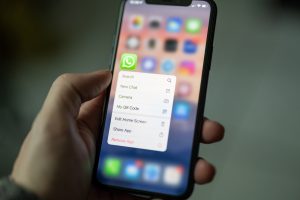
For those unfamiliar with PassKeys, they replace traditional passwords with unique alphanumeric cryptographic codes linked to each device. These codes ensure that only the rightful owner can access the account. PassKeys are stored on the user’s device, typically after authentication via methods like fingerprint, facial recognition, or a PIN. This eliminates the need for two-factor authentication methods such as one-time passwords (OTPs) sent via SMS or email.
PassKeys also offer protection against issues like password reuse and phishing attempts. After Google integrated support for storing these access keys in its password manager, numerous applications adopted this authentication approach. WhatsApp recently made an official announcement on a social network (referred to as “X”) about the introduction of this feature in the stable version of its Android application.
The initial indications of WhatsApp’s support for PassKeys emerged in August, with active development starting in the beta version in September. Within a month, the access keys became an official feature in the stable version of the application, effectively eliminating the need for SMS-based one-time passwords.
With this new feature, you can use your fingerprint, facial recognition, or a PIN to log in to WhatsApp for various scenarios, such as when switching to a new device or reinstalling the application. This streamlines the login process. The cryptographic key created is automatically stored in Google Password Manager, making it readily available for biometric authentication if you need to access the application again.
WhatsApp has not provided specific details on the global availability of this feature. Typically, new features are rolled out gradually, so it may take some days or weeks before all users can access it.
Newer Articles
- Android 14 Update Causes Storage Issues for Pixel 6 Series Smartphones
- Essential Tips for a Safe and Spooky Halloween at Home
- Everyday situations that highlight the Need for an Umbrella Insurance Policy

